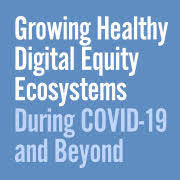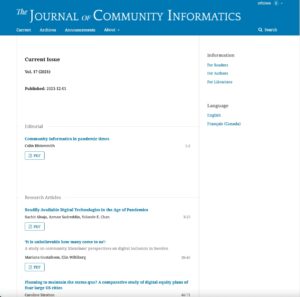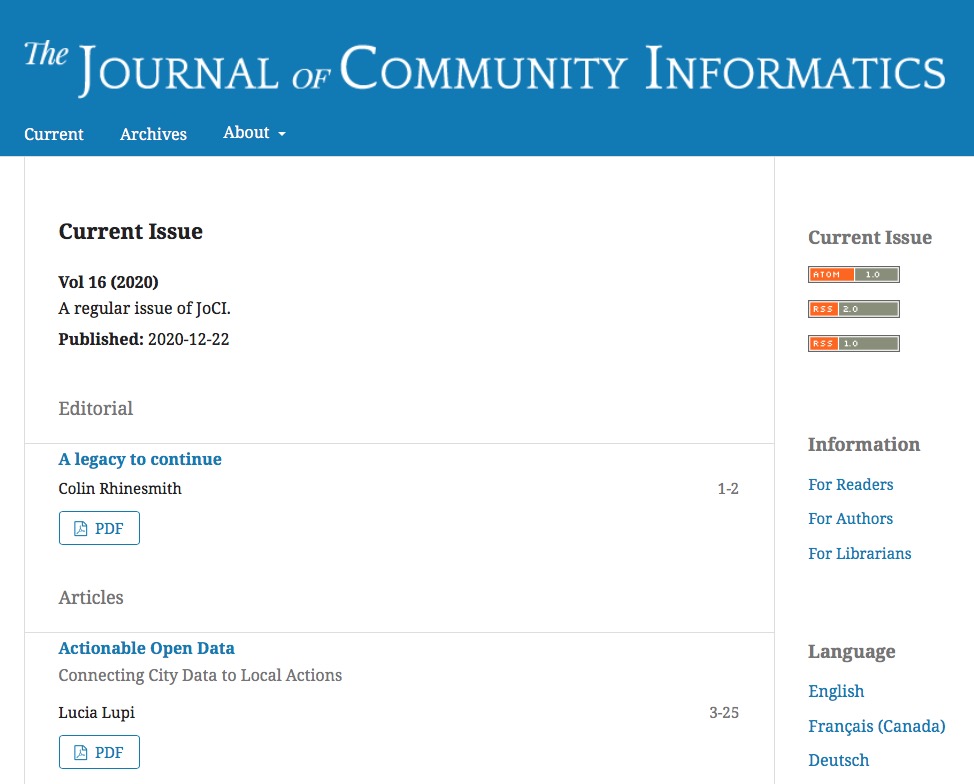 I am excited to announce that our Community Informatics Lab at Simmons University has authored a new report, titled “Growing Healthy Digital Ecosystems During COVID-19 and Beyond,” which was published last week by the Benton Institute for Broadband & Society.
I am excited to announce that our Community Informatics Lab at Simmons University has authored a new report, titled “Growing Healthy Digital Ecosystems During COVID-19 and Beyond,” which was published last week by the Benton Institute for Broadband & Society.
In the report, my co-author, Susan Kennedy and I present findings from a survey of individuals representing a diverse group of organizations across the United States that have self-identified as being part of either a formal, informal, or emerging digital inclusion coalition. The purpose of their study was to better understand the role these coalitions have played in supporting what they are calling “digital equity ecosystems” in their communities during the challenges of the pandemic.
In our Digital Beat blog post announcing the report, Susan and I argued that based on our report, “we believe there are several federal policy recommendations that we can make moving forward. On their transition-team website, President-elect Biden and Vice President-elect Harris have made it a priority to promote universal broadband. In order to achieve this goal, we argue that the new administration must connect its economic recovery agenda to its work to promote racial equity.”
We conclude the post by sharing the following four steps that the new administration should take to make their economic recovery and racial equity priorities a reality:
- Make broadband affordable for low-income communities of color.
- Support second chances for economic success through digital literacy programs.
- Ensure care workers receive training and support to help promote digital and racial equity.
- Make federal funding opportunities available for digital inclusion organizations.
Read the full descriptions of each recommendations in our full blog post on the Benton Institute for Internet & Society’s website.
 The new issue (Vol 17) of The Journal of Community Informatics is now online!
The new issue (Vol 17) of The Journal of Community Informatics is now online!


